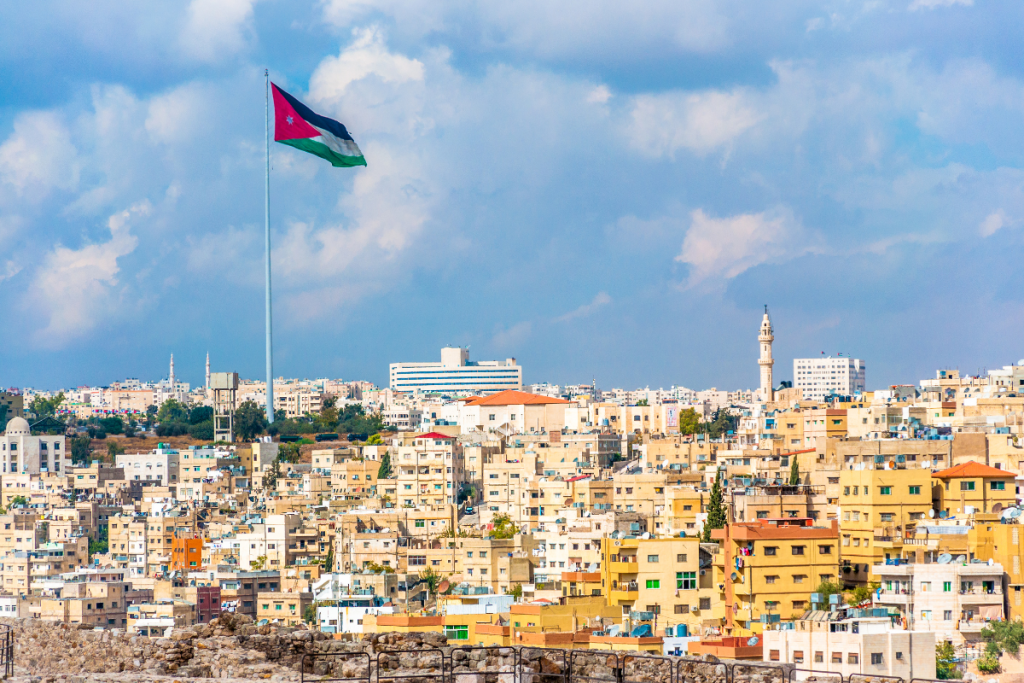Overview of Jordan
Jordan, officially known as the Hashemite Kingdom of Jordan, is a country located in the Middle East.
Here’s an overview of Jordan:
Geography: Jordan is bordered by Syria to the north, Iraq to the northeast, Saudi Arabia to the east and south, and Israel and Palestine to the west. The country has a diverse landscape, including the Jordan Valley, the Dead Sea (the lowest point on Earth), the fertile highlands of the north, and the deserts of Wadi Rum and the eastern region.
Capital City: The capital and largest city of Jordan is Amman. It serves as the political, economic, and cultural center of the country. Amman is a modern city with a blend of ancient and contemporary architecture, bustling markets, and a vibrant nightlife.
Population: Jordan has a population of around 10 million people. The majority of the population is of Arab descent, with the Jordanian people consisting of various tribes and ethnic groups. The country also hosts a significant number of refugees, including Palestinians and Syrians.
Official Language: The official language of Jordan is Arabic. English is widely spoken, especially in urban areas and in the tourism industry.
Religion: The majority of Jordanians are Muslims, with Sunni Islam being the predominant sect. There are also significant Christian communities in the country.
History: Jordan has a rich historical heritage dating back thousands of years. The region has been inhabited since prehistoric times and has witnessed the rise and fall of several civilizations, including the Nabateans, Romans, Byzantines, and the Islamic caliphates. Jordan has been part of various empires and was under British mandate until its independence in 1946.
Culture: Jordanian culture is influenced by Arab traditions, Bedouin customs, and the country’s historical significance. Hospitality is a significant aspect of Jordanian culture, and visitors are often warmly welcomed. Traditional music, dance, and cuisine play a vital role in Jordanian cultural celebrations and social gatherings.
Tourism: Jordan is a popular tourist destination known for its historical sites, ancient ruins, natural wonders, and warm hospitality. The UNESCO World Heritage Site of Petra, with its iconic Treasury, is a must-visit attraction. Other notable sites include the Roman ruins of Jerash, the Crusader castles of Ajloun and Karak, and the biblical site of Mount Nebo. The Dead Sea, Wadi Rum desert, and the Red Sea coastal city of Aqaba also attract visitors.
Economy: Jordan has a developing economy with industries such as tourism, manufacturing, information technology, and agriculture contributing to its growth. The country faces challenges due to its limited natural resources, water scarcity, and regional instability. However, Jordan has made efforts to diversify its economy and attract foreign investment.
Government: Jordan is a constitutional monarchy with a parliamentary system. The ruling monarch, King Abdullah II, is the head of state, and the Prime Minister is the head of government. The country has made strides in political reform and democratization in recent years.
Transportation: Jordan has a well-developed transportation system, with an extensive road network connecting major cities and tourist destinations. Amman has an international airport, and there are regional airports in Aqaba and other cities. Taxis, buses, and car rentals are common modes of transportation within the country.
Jordan’s rich history, archaeological treasures, natural wonders, and warm hospitality make it a captivating destination for travelers seeking a unique Middle Eastern experience.

Comment (0)